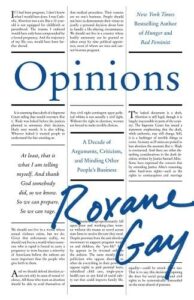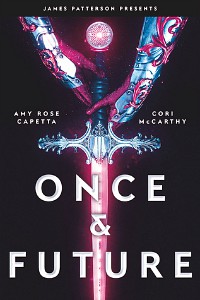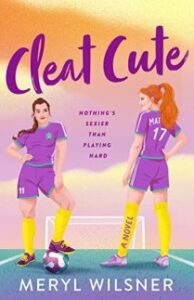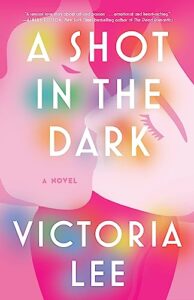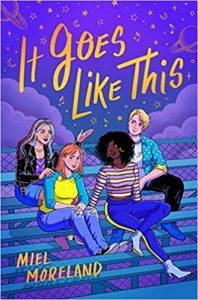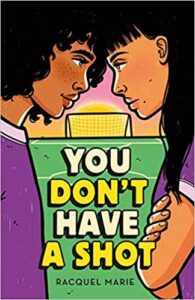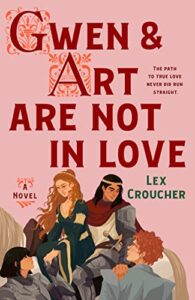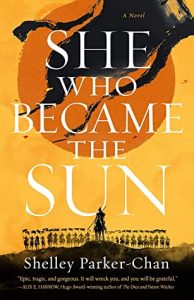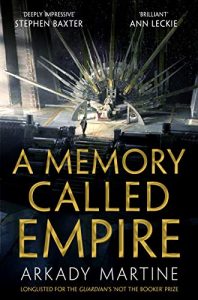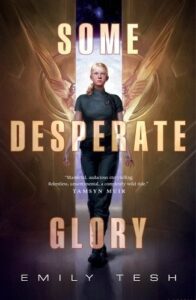Buy this from Bookshop.org to support local bookstores and the Lesbrary!
In Opinions: A Decade of Arguments, Criticism, and Minding Other People’s Business, Roxane Gay (she/her), author of New York Times bestsellers Bad Feminist and Hunger, delivers an expertly curated collection of her opinion writing on a host of different topics from approximately 2013 to 2023, or what she describes as a “decade of massive social upheaval.”
At the outset, I acknowledge that me sharing my opinions about Gay’s Opinions where she shares her opinions is confusing and meta. Stick with me anyway!
Opinions is timely and thought-provoking. It consists of sixty-six pieces separated into seven sections: Identity/Politics, The Matter of Black Lives, Civic Responsibilities, For the Culture, Man Problems, Minding Other Folks’ Business, and Solicited Advice. Each section contains several relevant pieces in order of original publication date. I really appreciated the way the book was organized because it set the tone for each piece before I read it and allowed me to experience the evolution of Gay’s thought process over several years. I also loved that each piece was between two and nine pages. It made the process of reading and absorbing each of Gay’s opinions much more manageable.
Opinions is provocative; Gay pulls no punches. Some of my favorite titles included: “No One Is Coming to Save Us from Trump’s Racism”; “You’re Disillusioned. That’s Fine. Vote Anyway.”; “I Don’t Want to Watch Slavery Fan Fiction”; and “I Thought Men Might Do Better Than This”. But Gay doesn’t just pen witty titles—her writing style is sharp and insightful. In “Cops Don’t Belong at Pride”, she discusses the history of Pride and her opinion that law enforcement should respect the boundaries of the LGBTQ community and not attend. In “Why I Can’t Forgive Dylan Roof”, Gay opines that Black people forgive because they need to survive and asserts that some acts are so terrible, they are beyond forgiving. In “Can I Enjoy Art but Denounce the Artist”, Gay weighs in on the longstanding debate of whether we should support the work of artists who behave badly.
Gay is bisexual and Haitian. As a fellow queer woman of color, I was so proud to read this book! Although I do not agree with every view Gay espouses, I respect her deeply as a pillar in the LGBTQ community and feel incredibly empowered by her audaciousness. Opinions is an engaging and worthwhile read that you can sit with and reflect upon over time.
If you want to get a flavor for Gay’s writing style, check her out on Twitter, where she shares her 280-character point of view on anything and everything, and on Goodreads, where she succinctly reviews her own books, as well as books from other authors.
Trigger warnings for all of the subjects of social upheaval in the last decade, including: child sexual abuse, sexual assault, rape, abortion, police brutality, mass murder, school shootings, racism, homophobia, and misogyny.
Raquel R. Rivera (she/her/ella) is a Latina lawyer and lady lover from New Jersey. She is in a lifelong love affair with books and earned countless free personal pan pizzas from the Pizza Hut BOOK IT! program as a kid to prove it.

